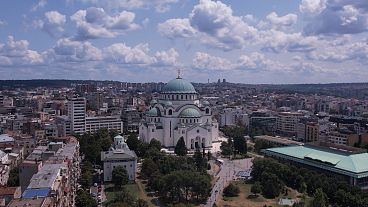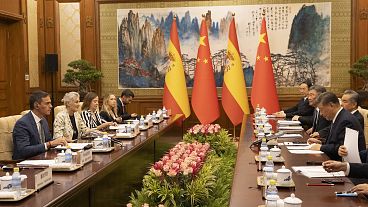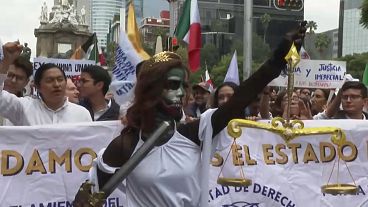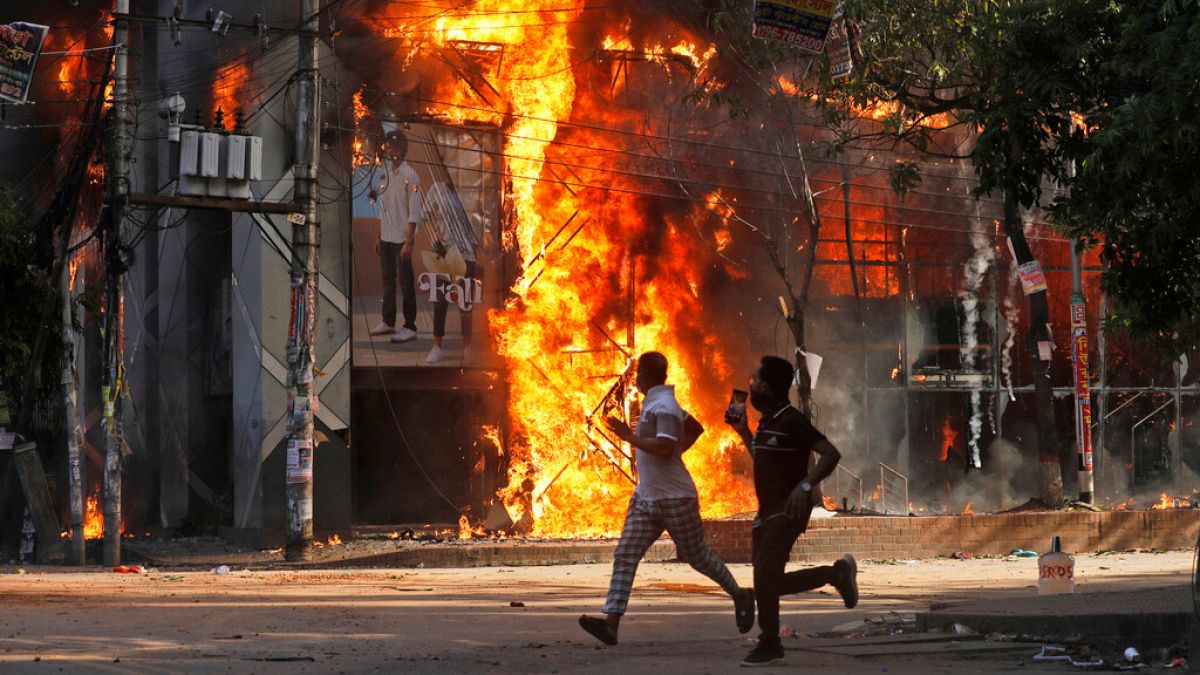The protesters demand the resignation of the country's prime minister, and justice for over 200 students and others killed during protests last month.
Nearly 100 people were killed and hundreds more injured Sunday as renewed anti-government protests swept across Bangladesh, with protesters calling for the prime minister to resign and the prime minister accusing them of “sabotage” and cutting off mobile internet in a bid to quell the unrest.
The country’s leading Bengali-language daily newspaper, Prothom Alo, said at least 95 people, including at least 14 police officers, died in the violence. Channel 24 reported at least 85 deaths.
The violence follows peaceful protests in the capital on Saturday, which demanded justice for the over 200 students killed during protests last month.
The wave of protesters are largely students, but have recently widened to include people from all walks of life including some pro-government groups.
The students' protests last month began with the demand for an end to a quota system for government jobs that they said was discriminatory.
Under the system, 30% of such jobs were reserved for the families of veterans who fought in Bangladesh’s war of independence against Pakistan in 1971.
The protests began peacefully but turned violent as students at Dhaka University clashed with police and the activists of a student wing of the ruling Awami League party on 15 July. Since then, hundreds of people have died, and thousands of others have been injured.
Protests have continued to spread amidst outrage over the violence despite the country's Supreme Court cutting the veteran's quota to 5% in July.
Prime Minister Sheikh Hasina offered to talk with student leaders on Saturday but was refused by a coordinator in a Facebook post.
The protests have become a major challenge for Hasina, who returned to power for a fourth consecutive term in January in an election boycotted by her main opponents.
The general secretary of Hasina's ruling party said Saturday that it was calling on its supporters to demonstrate across the country on Sunday.
Hasina and other Cabinet ministers had earlier blamed the main opposition Bangladesh Nationalist Party and now-banned right-wing Jamat-e-Islami party's student wing for intruding into the protests, which both have denied.
Mirza Fakhrul Islam Alamgir, secretary-general of the main opposition Bangladesh Nationalist Party, said Saturday that they would continue to support the protesters in their movement.












